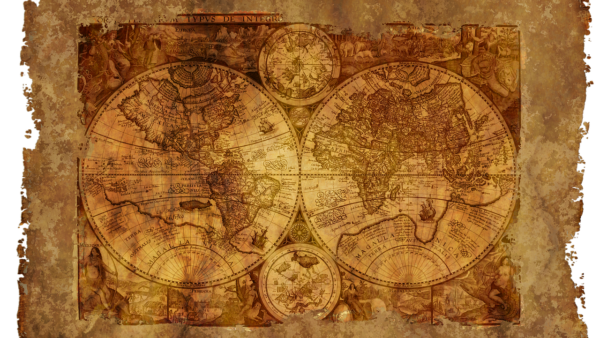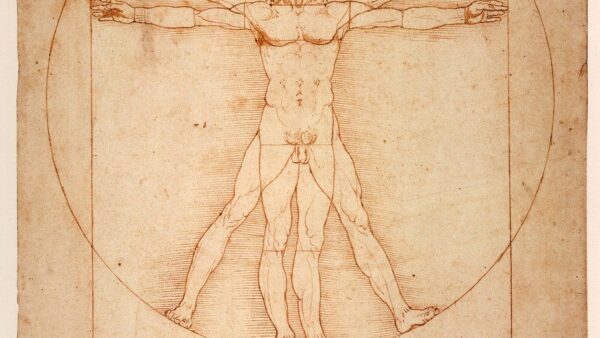Quality of Life
The concept of quality of life has existed since ancient times, evolving alongside human civilization and social development. Even early tribal communities sought to secure basic needs like shelter, food and provisions to support community growth. They fostered social interaction within and between tribes.
In these early phases, people’s demands on their communities were minimal. But over time, differences in living conditions and social status began to emerge. Some individuals were more successful providing for survival needs, others excelled in secondary pursuits, while some had little productive role. This created feelings of satisfaction or dissatisfaction according to each person’s conscience and level of civilization.
A similar dynamic occurred with the emergence of bartering economies, where some individuals fared better than others in exchanges, leading to varying standards of living even at this lowest stage of development. One of the most significant events in economic history was the creation of money, which had an immense and far-reaching influence on people’s lives. Money has a long history, though it is difficult to pinpoint its exact origins. Traditional views attribute the first monetary systems to Alexander the Great and later the Roman Empire.
The introduction of money created new conditions by enabling faster, simpler exchange and accumulation of wealth. This paved the way for societal divisions between the rich and poor. Ever since, man’s obsession with money has never waned, persisting even during hardship like wars, revolutions and natural disasters. As noted by sociologist Georg Simmel, inequality initially arises from uneven distribution of new money originating from a single source.
While quality of life and quality in general predate money historically, its rise has increasingly determined not just people’s livelihoods but also their relations with each other. Quality, money and quality of life constitute an enduring historical and economic trinity connected by many threads that has proven resilient over time and place. Their importance for human existence has grown stronger, particularly regarding money. Unlike other material possessions, it is most acutely felt when lacking. Today it is almost impossible to live entirely without money.
Modern Developments in Conceptualizing the Quality of Life
The quality of life is a phenomenon that has changed form and meaning intensely over its long history, especially in modern times. In recent decades, indicators of quality of life have become more clearly identifiable and quantifiable, allowing assessment of different communities’ standards. Considering improved quality of life as the goal of individuals and societies means involvement of numerous influential factors and stakeholders.
As an interdisciplinary field, quality of life research encompasses many layers, dimensions and complexities, incorporating diverse sociological, economic, cultural and other influences. Conventional approaches to evaluating it focus largely on a community’s material wealth—seen as the means to achieve requisite economic conditions for living and working. They consider impacts of non-material and spiritual factors only partially, missing life’s essence and purpose in their complexity.
Viewing quality of life solely through money and wealth acquisition disregards life’s full picture and pursuit of mere propaganda over truth. Such an aggressive, constant mental assault from proliferating information channels risks making people unable to distinguish between them. This environment may render recognition of real values and meaning in life increasingly difficult.
Eight Objective Indicators of Quality of Life
The European Commission’s statistical office Eurostat delineated eight basic quality of life indicators: 1) financial/material conditions 2) employment 3) health 4) education 5) leisure and social relations 6) economic security and personal safety 7) governance and basic rights and 8) natural and human-made environments. Overall life satisfaction is defined as the sum of these factors’ interplay with money as their basis.
Material conditions provide the necessary framework for measuring individuals’, households’ and societies’ potential, though they alone do not capture quality of life’s multidimensional nature. Employment, whether positive through good jobs or negatively through uncertainty, impacts material existence, identity, social contacts and more. Unemployment jeopardizes health and well-being.
Education is another cornerstone indicator, affecting quality of life through career and income opportunities, learning/skill development, social contacts and more. Studies show higher education correlates with higher pay and social benefits to individuals and societies. Health underlies quality of life by enabling life extension and satisfaction. However, preserving health grows increasingly difficult amid financial stresses, demanding lives leave little time for self-care.
Leisure and social engagement bolster psychological stability through community, trust and respect. Economic security gains significance given life uncertainties, as seen through recent economic crises. Personal safety constitutes a basic need and risks to freedom, security and families from threats like terrorism undermine quality of life. Governance quality and rule of law stability also factor in.
Money and Contemporary Challenges to Quality of Life
While the digital age enables new dimensions of quality like information access and communication speed, its impacts remain limited given its exclusion from life’s full complexity. The question arises if an integral, comprehensive, sustainable quality of life philosophy can truly form and implement in today’s money-equals-success paradigm. People now commonly define success in monetary rather than broader life terms.
The Bible cautions that the love, not possession, of money risks becoming the root of all evil. Studies reflect this, finding that monetary stresses pose leading causes of ill health. Success lies more in how money is earned and used, to generate happiness through fair acquisition and purposeful spending rather than accumulation alone. Life’s true meaning surpasses material wealth.
Those chasing endless money and profit through this “incredible race” have less time for contemplation and search for life’s answers, instead passively receiving proliferating information. This risks creating an inability to discern truth from mere propaganda. People come to inhabit a one-dimensional, digital world governed by profit at the expense of family, community and intangible pursuits.
For a balanced, multidimensional quality of life, ancient teachings note importance of cultivating physical, mental and spiritual well-being in harmony. However, modern lives seem increasingly inhospitable for this ideal given fixation on materialism and speeded-up digital existences. Recognizing real values and life’s meaning in such an environment proves ever more difficult.
While money facilitates many quality of life dimensions, it risks becoming all-consuming and warping priorities if loved over life itself. Many acquire vast wealth yet feel unfulfilled, having wasted precious time believing it could purchase all desires. True success means getting most from life through giving back value proportionate to gains. Life’s purpose lies not in money but in living fully as a holistic, complex being. Health and relations matter more than accumulated possessions left one is in ill health with broken ties.
Monetization of Quality of Life in Practice
Quality of life indicators help measure communities’ standards through statistical analysis. Material conditions, as the prerequisite means, set quality of life’s boundaries yet alone do not encompass its richness. Employment, education, health and other factors interconnect in shaping overall satisfaction according to financial access.
Employment secures livelihoods but also impacts well-being and social bonds positively or negatively. Studies link higher educational qualifications to higher pay benefits for individuals and societies. Health protects through longer, enriched lives yet preserving it amid modern stresses poses an immense challenge.
Leisure, social bonds and security factors bolster stability. Personal safety constitutes a basic need. Environmental quality of living places matter. However, such “hard” economic indicators alone offer an incomplete picture, disregarding life’s full spiritual and intangible complexity essential to holism and sustainability.
Subjective well-being also features, as indicated by differing satisfaction levels among citizens with equal access. While money facilitates, it risks becoming life’s sole arbiter. Quality extends beyond material conditions through nurturing health, wisdom, community, purpose and meaning—all nourished outside busy, target-fixated modern existence. Life’s true meaning lies not in accumulation itself but richer, deeper living through contribution and balance.
Towards an Integrated, Sustainable Quality of Life Vision
Quality of life advances through involvement of stakeholders across spheres and integration of its multidimensional nature. While indicators quantify standards, a complete philosophy recognizes life’s intricacies demanding nurturance outside material pursuits alone.
Digital potentials must integrate with physical, mental and spiritual dimensions rather than exclude them. Success stems not just from earnings but giving back proportionately through fair work, strong relationships and service—leaving lasting impact beyond financial metrics.
Life’s meaning lies in holistic growth as a complex being, not wealth or status in isolation. Health, community, learning and finding purpose matter more than accumulation if diseased, disconnected or adrift thereafter. Ancient wisdom’s balance of aspects endures, helping navigate modern complexities and pressures.
Education remains a cornerstone yet demands continuous, effortful betterment beyond information alone. Knowledge adds value when applied practically and ethically for common good. A sustainable vision recognizes humanity’s intricate, interdependent nature while cultivating individuals’ potentials for contributing innovatively.
Prioritizing untangled spiritual growth and search for deeper answers can help realize life’s richness over empty materialism. Appreciating life fully necessitates making time for contemplation amid hurried lives. Overall, an integrated philosophy upholds dignified living standards through balanced focus on indicators, yet moves beyond quantification by centering on humanity’s holistic flourishing. Quality of life ultimately stems from within by consciously crafting fulfilling existence.





